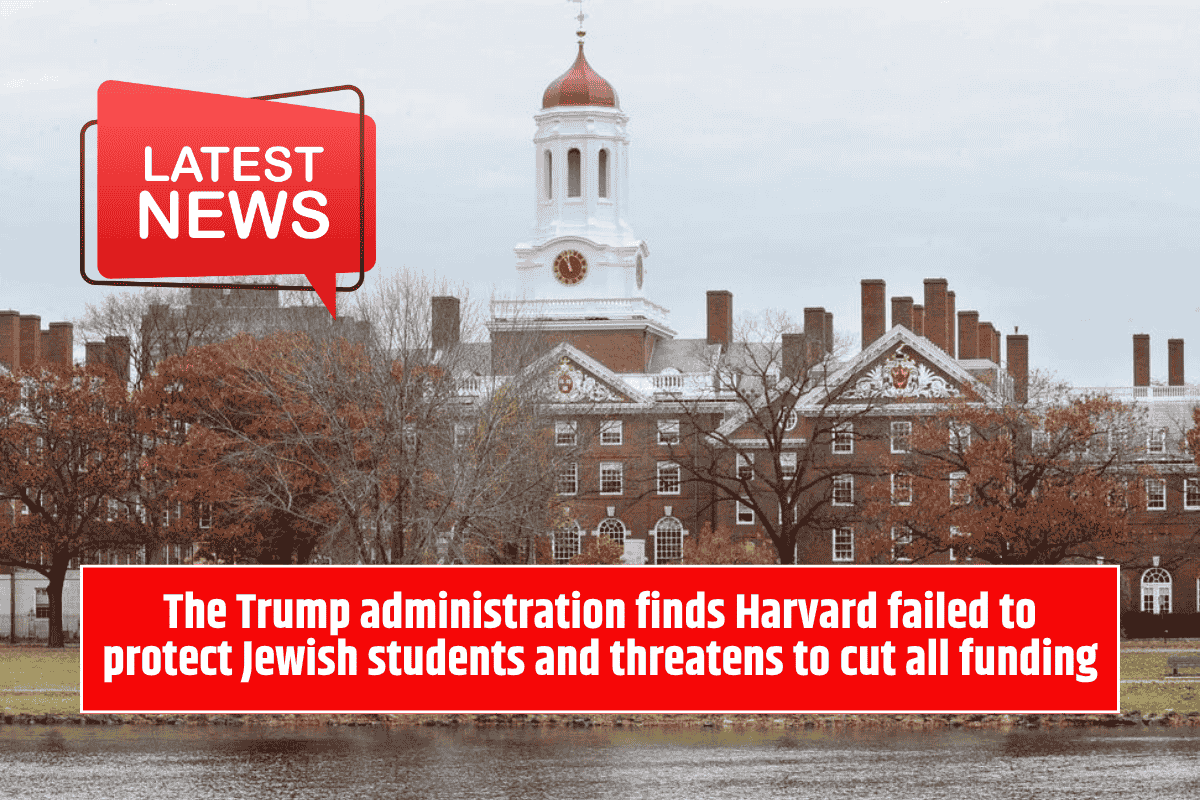The Trump administration on Monday intensified its long-running dispute with Harvard University by formally accusing the institution of tolerating antisemitism on its campus.
This serious claim could jeopardize Harvard’s ability to access critical federal funding, including federal student aid, as the administration threatens to refer the case to the Justice Department for a civil rights lawsuit.
The Government’s Accusation
In a letter sent to Harvard, a federal task force accused the university of being a “willful participant” in antisemitic harassment of Jewish students and faculty members.
The task force detailed its findings in a 57-page report based on an investigation by the Department of Health and Human Services’ civil rights office. The report draws heavily from a campus antisemitism study commissioned by Harvard, which was released in April.
The government’s accusation focuses on last year’s protests surrounding the Israel-Hamas war. The letter alleges that Harvard’s campus became “overrun” by antisemitic protests, with Jewish and Israeli students feeling threatened and fearful.
It also highlights instances where Jewish students reported being spit on or subjected to chants like “Heil Hitler.” Federal officials criticized the university for not taking stronger disciplinary action against students who participated in these protests, noting that no suspensions were handed out.
Threat to Federal Funding
The administration’s findings carry significant consequences. If Harvard fails to make immediate changes in response, federal officials warned that the university could lose access to all federal financial resources.
This would include both student financial aid and research grants, the latter of which amounts to over $2.6 billion in cuts already imposed by the government.
Losing access to these federal funds could have devastating effects on Harvard, often referred to as a “death sentence” for universities reliant on such funding.
This escalating conflict follows months of tension between the Trump administration and Harvard. The government had already imposed sanctions on the university after it rejected several federal demands for changes to campus governance, hiring, and admissions practices.
Harvard’s Response
Harvard University has firmly disagreed with the government’s findings. In a statement, the university condemned antisemitism as unacceptable in any form, but insisted that it had taken proactive steps to address these issues on campus.
Harvard President Alan Garber acknowledged the presence of antisemitism and anti-Muslim bias but emphasized that the university had worked hard to combat these forms of bigotry and introduced new initiatives to promote inclusivity.
“Harvard cannot — and will not — abide bigotry,” Garber had stated when discussing new efforts to tackle prejudice in April.
Legal and Political Implications
The administration’s actions mark a sharp escalation in its approach to higher education institutions. The Trump administration is seeking to take stronger measures against schools found in violation of civil rights laws, a path that could involve stripping Harvard of its federal funding.
While such actions have rarely been pursued in the past, this strategy is becoming a hallmark of the administration’s more aggressive stance on institutions perceived to be politically biased or noncompliant with federal policies.
This move follows a broader strategy by the Trump administration, which has targeted other states, such as Maine and California, over issues related to civil rights violations in education.
Harvard, however, stands out as one of the most prominent targets of this administration’s crackdown on liberal-leaning institutions.
Previous Sanctions and Legal Challenges
In addition to the potential loss of federal funding, the Trump administration has previously imposed research cuts and attempted to bar Harvard from hosting foreign students. President Trump has also suggested that the university should lose its tax-exempt status.
While many of these actions have been blocked by courts, Harvard has had to fight back through legal challenges, claiming the government’s actions were illegal retaliation.
The Trump administration’s formal accusations against Harvard significantly deepen the ongoing conflict between the White House and the prestigious university.
The potential loss of federal funding, along with a civil rights lawsuit, could have lasting impacts on Harvard’s operations and its relationship with the federal government.
As the situation unfolds, both sides continue to engage in a high-stakes battle over antisemitism, campus governance, and federal funding.






